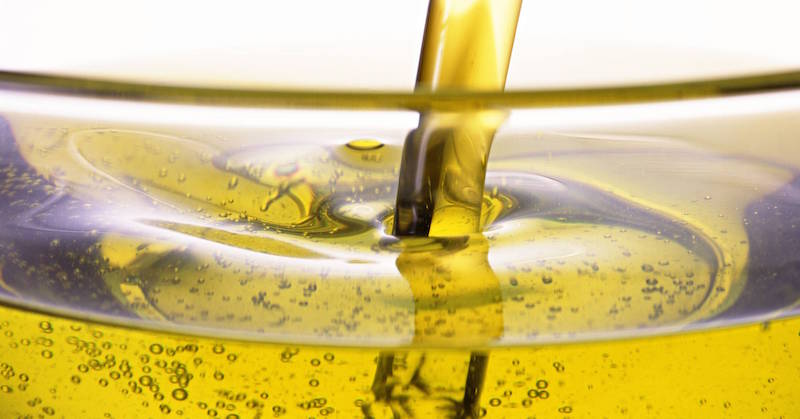Understanding Fats: Harmful Fats
Last updated on
Fats can be an enigma. They are one of the 6 groups of essential nutrients required by the human body to keep us alive. Yet harmful fats are also blamed for a string of health problems including obesity, heart disease and death.
Read on to understand the difference between good and bad fats. Find out which foods contain harmful fats that damage your health and eliminate them from your diet.
Good Fats And Bad Fats
As it were, not all fats were created equal.
Some people cringe when they hear the word “fat”. They think of the weight they will gain when they eat fatty foods. But this need not be: if we just understand which fats to eat and which to avoid. Good fats can actually facilitate weight loss!
Fats can be split into essential and non-essential fats. Essential Fatty Acids (EFAs) are called such because they are just that: essential for our survival. Yet many of us omit these from our dietary and take the non-essential kinds of fats instead. If we can only differentiate the type of fats we eat, cutting out the killer fats, and consuming more of the healthy fats, then we could reverse many unnecessary health problems.
There are two essential fatty acids required by the human body. All other fats can be synthesized by the body itself. Here are some of the best sources of essential fats.
Which Fats are Harmful?
Below is a list of harmful, dangerous fats that you need to cut out of your diet:
Saturated Fats
Saturated Fats are found in red meat, dairy products and palm kernel. They are often referred to as “hard fats” as they are semi-solid to solid at room temperature.
When consumed, saturated fats tend to clump together to form deposits, along with protein and cholesterol. They get lodged in our cells and organs, causing many health problems, including obesity, heart diseases, stroke and cancers of breast and colon.
Transfat
Transfat is man-made oil. By processing and refining vegetable oils, the structure of polyunsaturated oil is altered into hard fats that our body cannot use. This process is called hydrogenation.
Margarine is an example that has gone through this process. When put under a microscope, the molecules of margarine are very similar to that of plastic! Do you really want to eat this?
Most processed foods are loaded with trans-fat: French fries, onion rings, fast (fried) foods, commercially baked cakes, cookies, crackers, muffins, pies, croissants, cereals, peanut butter, chocolate, potato chips and ice cream.
Hydrogenated Cooking Oil

When frying, the high temperature oxidizes the oil, turning it rancid and toxic to the body. Many commercial restaurants and fast-food establishments repeatedly reuse the same cooking oil for deep-frying until it becomes dark and rancid. When ingested, this oil generates harmful free radicals that are carcinogenic (cause cancer) in the body.
Problems with hydrogenated vegetable oil
- Mass-produced oils are processed using very high temperature and pressure causing the loss of nutritional substances such as lecithin, vitamins A and E, minerals and chlorophyll. Processing even removes the natural aroma, rendering the oil bland.
- Toxic petrochemical solvents used to extract the oil from the seeds can end up in the oil.
- Preservatives are used to extend the shelf-life. Ingested, these cause degeneration of our cells.
- The liquid oils are usually packaged in transparent plastic bottles. The light entering the bottles causes further deterioration of whatever nutrition was left in the oil.
Examples of hydrogenated oils are: palm, safflower, sunflower seed, cotton seed and corn oil. Do not be deceived by the name which may sound “natural and healthy”.
Safer cooking oils are cold-pressed virgin olive oil for light cooking, and grapeseed oil for high heat. These are usually contained in dark glass bottles to prevent oxidation.
The Problems Caused by Harmful Fats
The body cannot use trans-fatty acids, so they sit around fatty tissues and the body’s organs causing trouble:
Cardiovascular diseases: The free radicals from the ingestion of trans-fat irritates blood vessel walls. Calcium, sent to soothe the irritation combines with oxidants to form plaques that clog up the arteries causing hypertension. When blood flow to the heart is stopped, a heart attack occurs. When blood flow to the brain is stopped, a stroke occurs.
Hormonal imbalance: A reckless diet of high carbohydrate, sugar, processed foods and trans-fat causes havoc to the production of hormones. Along with hormonal imbalance are many other symptoms like menstruation disorders in women, prostate problems in men and excessive hair loss.
Immune system: Excess trans-fat and poor eating habits prevent enzymes from doing their job of regulating essential fatty acid metabolism. This leads to an immune system breakdown and development of auto-immune diseases similar to lupus, multiple sclerosis and rheumatoid arthritis.
Mental sluggishness: As our brain is largely composed of fat, the wrong kinds of fats ingested can induce the lipid rich parts of the brain to oxidize and break down. These harmful oils, whether hydrogenated or partially hydrogenated, promote inflammation and deterioration of our brain cells.
Obesity: Saturated fats are stored in adipose tissue. Adipose cells can swell up to 1,000 times their own size, storing large amounts of fat. Saturated fats, which are flat, stack up easily in these cells, causing obesity, and not without a host of many other health problems.
Harmful fats are acid-forming: Saturated and hydrogenated fats are acid forming in the body. Acidic blood is an ideal environment for bacteria and disease to thrive.
Trans-fat And Cholesterol
The twentieth century diet is a good recipe for high cholesterol. Trans-fat is found in almost every processed food in the supermarket. This type of fat can lower your “good” cholesterol (HDL) and increase your “bad” cholesterol (LDL).
Though low density lipoproteins (LDL) are necessary for the body function, high levels in the presence of free radicals causes oxidation (inflammation) of the blood. This contributes to the arterial plaque build-up and hardening of the arteries, leading to heart attacks, strokes, and aneurysms.
The video below explains the dangers of trans-fat very well.
How to Reduce Harmful Fats in Your Diet
Governments are waking up to the dangers of trans-fat, and some have actually banned them in restaurants. However most cooking oils are already damaged by processing; and in the name of economy, cheap oils are still be used for commercial cooking.
The FDA rules that if a single serving contains more than 0.5 grams or more trans-fat then it must be listed on the Supplement Facts panel of food packaging. So packaging may list trans-fat as 0 gram. But zero does not always mean zero as they most likely still contain just under 0.5grams of trans-fat. These are often marketed as “reduced fat”, “zero fat” or “low fat”. 0.5 gram per serving quickly adds up.
Where possible, avoid harmful fats by:
- Not eating fast food and commercially prepared food cooked in oil
- Avoiding processed foods
- Always checking the labels – look for “hydrogenated oil” or “partially hydrogenated oil” even when the label may say “trans-fat 0g”
Increase your fruit and vegetable intake. Drink fresh juices regularly in order to supply your body with natural anti-oxidants that can help reduce the harmful oxidation caused by these dangerous fats.
Further reading
Learn in the following pages about the essential fatty acids which can help you to reverse most conditions created by the non-essential and harmful fats.
Understanding Essential Fatty Acids
The best food sources of essential fats
Some of the links I post on this site are affiliate links. If you go through them to make a purchase, I will earn a small commission (at no additional cost to you). However, note that I’m recommending these products because of their quality and that I have good experience using them, not because of the commission to be made.


































 JOIN OVER
JOIN OVER
Comments